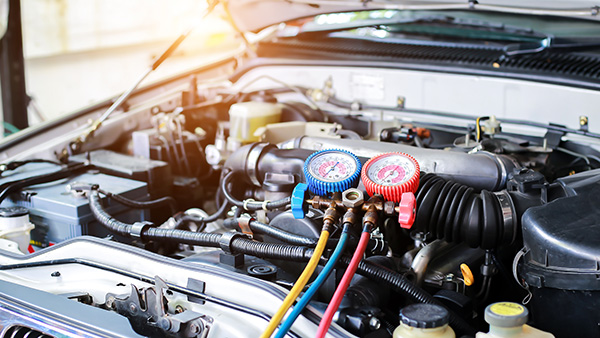
When cruising down the highway on a scorching summer day, the one thing keeping you cool and comfortable is your car's air conditioning system. But what if it starts blowing warm air instead of blasting a refreshing chill? Your drive will turn from pleasant to unbearable. Ensuring that your car's A/C stays cold all summer isn't just about comfort but also about ensuring your vehicle runs efficiently. So, how can you keep your car's A/C in top shape? Let's explore some essential tips and tricks.
Regular Maintenance is Key
First and foremost, regular maintenance is the cornerstone of a well-functioning A/C system. Just like any other system of your car, the A/C needs routine check-ups to keep it running. But what does A/C maintenance involve? It typically includes inspecting and topping off the refrigerant, checking the compressor for any signs of wear or damage, and ensuring that the condenser and evaporator are clean and functioning correctly.
Regular maintenance prevents breakdowns and ensures that your A/C system is working at its optimal efficiency. This means your car cools down faster and uses less energy, which can even save you a bit on fuel costs. So, if you haven't had your A/C system checked recently, now is the perfect time to do so.
Check and Top Off the Refrigerant
The refrigerant is the lifeblood of your car's A/C system. It's the substance that absorbs heat from inside your car and releases it outside, creating that cool, refreshing air. Over time, refrigerant levels can drop due to leaks, significantly reducing your A/C's cooling capacity.
If you notice that your A/C isn't as cold as it used to be, it might be time to check the refrigerant levels. You should always have the system inspected by a professional. They can check for leaks, recharge the system, and ensure that everything is running as it should be.
Clean or Replace the Cabin Air Filter
Another crucial component of your car's A/C system is the cabin air filter. This filter traps dust, pollen, and other airborne particles, preventing them from entering your car's interior. Over time, the cabin air filter can become clogged with debris, restricting airflow and reducing the efficiency of your A/C system.
Replacing the cabin air filter is a relatively simple task that you can do yourself. Most car manufacturers recommend changing the filter every 12,000 to 15,000 miles, but it's a good idea to check your owner's manual for specific recommendations. A clean air filter ensures that you get maximum airflow, keeping your car cool even on the hottest days.
Inspect the A/C System for Leaks
A common reason for an underperforming A/C system is leaks. Even a small leak can cause the refrigerant levels to drop, leading to reduced cooling performance. If you suspect a leak, it's essential to address it promptly to prevent further damage to the system.
You can start by visually inspecting the A/C components for any signs of oil or refrigerant leaks. Common areas to check include the compressor, hoses, and connections. If you find any signs of leakage, it's best to take your car to a professional for a more thorough inspection and repair.
Keep the Condenser Clean
The condenser is responsible for releasing the heat absorbed by the refrigerant into the outside air. It's located at the front of your car, often near the radiator. Because of its location, the condenser can easily become clogged with dirt, leaves, and other debris, which can impede its ability to release heat efficiently.
To keep your condenser clean, periodically check for any buildup of debris and gently clean it with a soft brush or compressed air. Be careful not to damage the delicate fins. Keeping the condenser clean ensures that your A/C system can expel heat effectively, keeping your car cool and comfortable.
Use Your A/C Wisely
How you use your A/C can also impact its performance and longevity. Here are a few tips to use your A/C wisely:
Pre-cool your car
If your car has been sitting in the sun, open the windows for a few minutes to let the hot air escape before turning on the A/C. This reduces the workload on your A/C system and helps cool your car faster.
Don't set the temperature too low
Setting the temperature to the lowest setting forces the A/C system to work harder, which can lead to increased wear and tear. Set a comfortable temperature and use the recirculation mode to maintain it.
Regularly use the A/C
Running the A/C regularly, even in the winter, helps keep the system lubricated and prevents the seals from drying out and leaking.
Don't let a faulty A/C ruin your summer drives. Trust the experts at Elite Auto Repair to keep your car cool and comfortable. Contact us now to book your service!